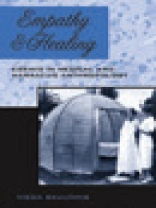For more than three decades the author has been concerned with issues to do with emotion, suffering and healing. This volume presents ethnographic studies of South Wales, Maharashtra and post-Soviet Latvia connected by a theoretical interest in healing, emotion and subjectivity. Exploring the uses of narrative in the shaping of memory, autobiography and illness and its connections with the master narratives of history and culture, it focuses on the post-Soviet clinic as an arena in which the contradictions of a liberal economy are translated into a medical language.
Cuprins
List of Figures
List of Tables
Note on Site of Original Publication
Chapter 1. Introduction
Chapter 2. Empathy and Healing: Aspects of Spiritualist Ritual
Chapter 3. Bodily Madness and the Spread of the Blush
Chapter 4. The Symbolic Significance of Menstruation and the Menopause
Chapter 5. Women and Affliction in Maharstra: A Hydraulic Model of Health and Illness
Chapter 6. Anthropology and Psychiatry: The Uneasy Alliance
Chapter 7. Remembering and Forgetting: Anthropology and Psychiatry – The Changing Relationship
Chapter 8. A Historical Disorder: Neurasthenia and the Testimony of Lives in Latvia
Chapter 9. Narratives of the Body and History: Illness in Judgement on the Soviet Past
Chapter 10. From Damaged Nerves to Masked Depression: Inevitability and Hope in Latvian Psychiatric Narratives
Chapter 11. Looking for a Subject: Latvian Memory and Narrative
Chapter 12. The Expropriated Harvest: Narratives of Deportation and Collectivization in North-East Latvia
Chapter 13. Narratives of Landscape in Latvian History and Memory
Chapter 14. Arguing with the KGB Archives: Archival and Narrative Memory in Post-Soviet Latvia
Chapter 15. Varieties of Deception and Distrust: Moral Dilemmas in the Ethnography of Psychiatry
Bibliography
Index
Despre autor
Vieda Skultans is Professor of Social Anthropology at the University of Bristol. Her previous publications include The Testimony of Lives: Narrative and Memory in post-Soviet Latvia (Routledge, 1998).












